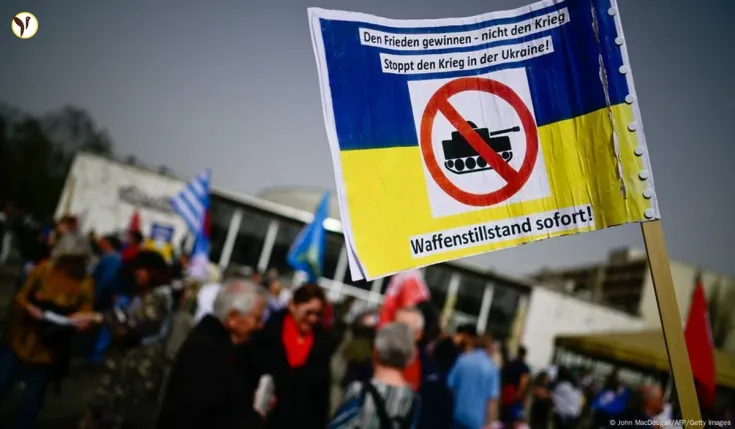The Ongoing Struggle for Peace in Ukraine: A History of Broken Ceasefires
The war in Ukraine, ignited by Russia's illegal annexation of Crimea in 2014 and escalating with the full-scale invasion in February 2022, has witnessed numerous attempts at peace, all tragically short-lived. This article explores the repeated failures to achieve a lasting ceasefire and the complexities surrounding the latest peace proposals.
A Decade of Failed Attempts
For over a decade, Ukraine, its allies in Europe and the United States have tirelessly sought a resolution to the conflict. Yet, despite numerous diplomatic efforts, a lasting peace remains elusive. The root of the problem lies in Russia's consistent breaches of agreements intended to protect Ukraine's sovereignty.
- The Budapest Memorandum (1994): This agreement, signed by Russia, the US, and the UK, guaranteed Ukraine's territorial integrity in exchange for the surrender of its nuclear weapons. Russia's violation of this pact, starting with the annexation of Crimea, casts a long shadow over subsequent peace efforts.
- The 1997 Russian-Ukrainian Treaty of Friendship: This treaty further underscored mutual respect for territorial integrity and yet another pledge broken by Russia.
- The Minsk Agreements (2014 & 2015): These two agreements, signed in Belarus, aimed to de-escalate the conflict in eastern Ukraine. Both, however, crumbled within days or hours of their implementation, highlighting the challenges in enforcing ceasefires amidst ongoing hostility.
The repeated failures of these agreements underscore a critical point: ceasefires are only as strong as the commitment of all parties to uphold them. In the context of the Ukraine conflict, Russia's actions have consistently demonstrated a disregard for previously signed agreements.
The Latest Ceasefire Proposal and Its Challenges
Recent developments include a proposal by Russian President Vladimir Putin for a new round of ceasefire negotiations in Istanbul on May 15th. This announcement came immediately after a three-day unilateral truce declared by Russia ended, followed by a fresh drone attack on Kyiv. This blatant disregard for any truce proposal fueled further skepticism.
European leaders and Ukrainian President Volodymyr Zelenskyy have firmly rejected direct talks without a prior unconditional ceasefire enacted by Russia. This highlights the deep mistrust and lack of confidence in Russia's commitment to genuine peace negotiations. They demand concrete steps before engaging in further dialogue.
Meanwhile, ongoing negotiations between the US and Ukraine, and separately between US and Russian diplomats, continue. The US, under President Trump, has actively sought to mediate, but success has remained elusive. This highlights a lack of unity and agreement even among allies about a path forward.
A History of Broken Promises
Since the full-scale invasion in February 2022, numerous short-term ceasefires have been declared, only to be quickly broken by one side or the other. Accusations of ceasefire violations fly constantly, leaving little room for progress toward lasting peace.
- Examples include the failed humanitarian ceasefire in March 2022, the broken Orthodox Christmas truce in January 2023, and various other short-lived attempts at de-escalation.
The repeated violations and lack of trust underline the need for a fundamental shift in approach: a verifiable and genuinely enforced ceasefire before any meaningful peace talks can commence.
Conclusion: The Path Forward
The ongoing war in Ukraine underscores the immense challenges in achieving lasting peace in the face of persistent aggression and broken promises. While dialogue is crucial, it must be preceded by concrete actions, specifically an unconditional ceasefire, to create an environment conducive to genuine negotiations. Only then can there be hope for a future free from the violence that has plagued Ukraine for far too long.
The international community must remain united in its demand for an immediate and unconditional ceasefire before attempting further peace talks. Without this crucial step, any diplomatic efforts risk being futile and the cycle of broken ceasefires will undoubtedly continue.






